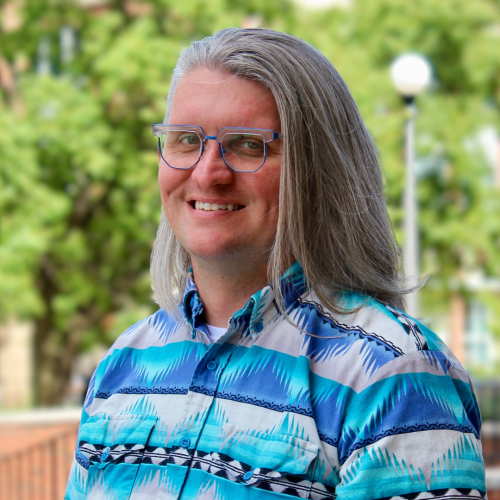The iSchool is pleased to announce that Travis L. Wagner will join the faculty as an assistant professor in August 2023. They currently serve as a lecturer in the College of Information Studies at the University of Maryland.
Wagner's research interests include critical information studies, queer archives, and LGBTQIA+ advocacy in sociotechnical systems. Their work investigates how LGBTQIA+ communities create identity in opposition to sociotechnical systems that characterize and limit those identities. Multiple projects within the classroom and with community organizations have led to Wagner exploring and publishing the unique relationships between obsolete archival mediums and queer counter-historical work across archival contexts. Their recent publications include articles in the Journal of Information Science, Journal of the American Medical Informatics Association and Artifact & Apparatus.
"We are delighted that Travis will be joining us," said Dean and Professor Eunice E. Santos. "Their work will complement our research and teaching in diversity, equity, and access as well as digital archives."
Wagner earned their PhD in information science from the University of South Carolina (USC) and served as a postdoctoral fellow at the Center for Archival Futures (CAFe) and Recovering and Reusing Archival Data (RRAD) Lab at the University of Maryland College of Information Studies. They are the co-creator of the Queer Cola Oral History and Digital Archive.
"I am excited to be joining the amazing work happening within the iSchool at Illinois," said Wagner. "In particular, I am excited to begin working with the faculty and students to explore innovative methods to make visible and accessible the rich media histories of historically marginalized communities in an increasingly digital world."
